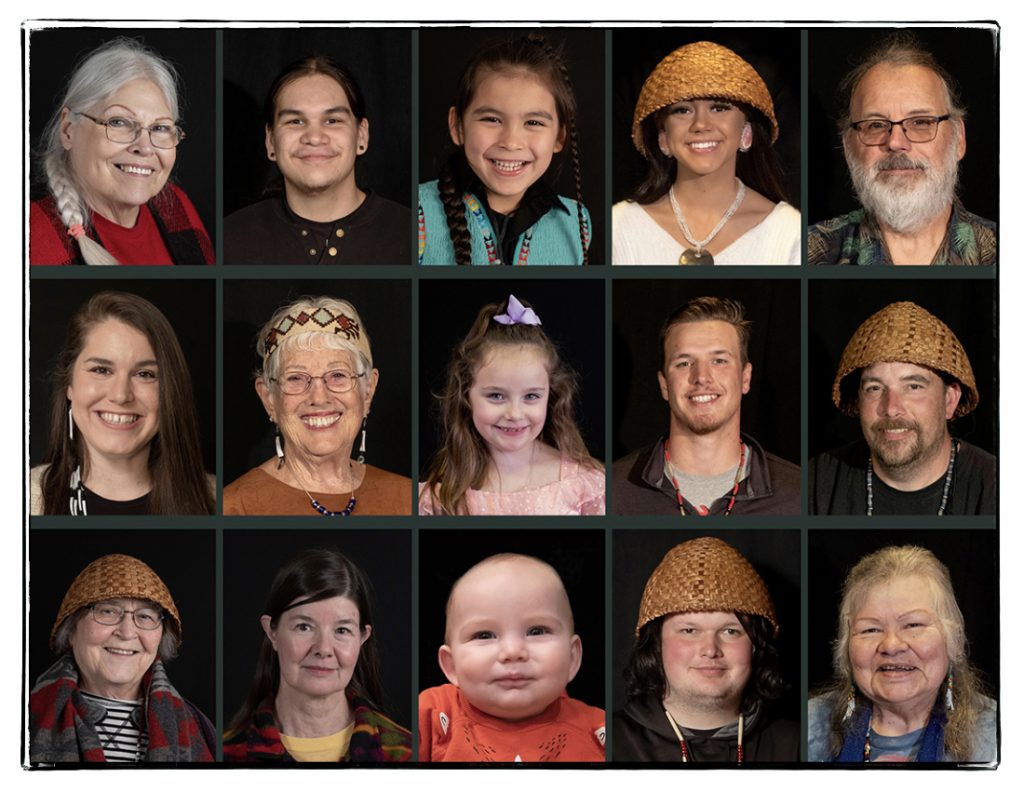
Recognition
Seeking Justice Since 1851
The Chinook Indian Nation is made up of the five western-most Chinookan speaking tribes at the mouth of the Columbia River. Our nearly 70-year-old constitution codifies who we are and identifies our five constituent tribes – the Clatsop and Cathlamet (Kathlamet) of present-day Oregon and the Lower Chinook, Wahkiakum (Waukikum) and Willapa (Weelappa) of what is now Washington State (map) . Our Nation’s constitution was first drafted in 1925 by the Tribal leaders of these Tribes and was later amended in the early 1950s. The constitution outlines Tribal membership criteria and clearly references five Anson Dart treaties signed by our ancestors at Tansy Point in 1851, it is also one of the oldest living tribal constitutions in the Pacific Northwest.
The treaties negotiated with Anson Dart allowed us to stay within our aboriginal territory, maintain access to resources and importantly remain in close proximity with the bones of our ancestors. We fulfilled our obligations under these treaties, but unbeknownst to us at that time they were not formally ratified by the United States Congress. That winter we suffered immensely waiting for the goods and money promised to us, but we stayed.
In 1855, another treaty council was held, this time led by Territorial Governor Isaac Stevens. Prior to this negotiation Stevens sent individuals to Chinook territory to learn what we desired from a new treaty. We named a location in our territory and stated we would give up the rest if allowed to stay. At the negotiation it became clear that we would be asked to move north from our territory to Quinault. Chinook Chief Nahcotta expressed our feelings clearly:
“When you first began to speak, we did not understand you; it was all dark to us as the night; but now our hearts are enlightened, and what you say is clear to us as the sun. We are proud that our great father in Washington thinks of us. We are poor and can see how much better off the white men are than we are. We are willing to sell our land, but we do not want to go away from our homes. Our fathers, and mothers, and ancestors are buried there and by them we wish to bury our dead and be buried ourselves. We wish, therefore, each to have a place on our own land where we can live, and you may have the rest; but we can’t go to the north among the other tribes. We are not friends, and if we went together, we should fight, and soon we would all be killed” (Narkarty in Swan 1969:345)
Our ancestors and those of our Lower Chehalis and Cowlitz neighbors returned to their homes furious and without results. Still we stayed with the bones of our ancestors. Governor Stevens expressed his intent to come back to the Chinook to negotiate an independent treaty with us after his 1855 efforts failed. However, he left Washington in 1857 and was killed in the United States’ Civil War.
Our community hired our first lawyers in the 1890s to address the fact that our lands were taken from us and we were never compensated for them. Our efforts resulted in acts of congress in 1912 and 1925. In 1958, Chinook filed a suit under the Indian (Land) Claims Commission and were acknowledged as the legitimate heirs to the Chinook and Clatsop lands within our aboriginal territory. Chinook won that case (Docket 234) in 1970, but monies from the settlement have never been dispersed because of disagreements regarding the logistics of how that would happen, and out of frustration by the Tribe that we only received 1851 values for these significant lands at the mouth of the Columbia River. Chinook received quarterly statements on our trust fund, that has grown significantly, until 2012 when the BIA simply quit sending them without explanation or notification. When Chairman Tony A. Johnson requested statements in 2015, he was denied and informed that because the Chinook Indian Nation is not federally acknowledged, the trust funds now did not belong to the Tribe.
In 1982 the Chinook Indian Nation petitioned the United States for federal acknowledgment under a newly created process for doing so. Chinook’s status was eventually clarified when Federal Acknowledgment was granted in 2001 through the Office of Federal Acknowledgment. Astonishingly, this right, and evidence-based, decision was reversed by the administration of President George W. Bush 18 months later.
Kevin Gover, as head of the BIA at the time of our acknowledgment, had argued correctly that in 1912 the Lower Chinook Anson Dart treaty was statutorily ratified. This must be acknowledged today. The rights associated with it will pave a bright path for our future. Unlike Mr. Gover, too many of those in power have neglected us or simply dropped the ball when given the opportunity.
As part of our ongoing effort toward recognition we filed a suit, Chinook Indian Nation v. Zinke, against the U.S. Department of Interior in August of 2017.
A brief overview of the Chinook Indian Nation’s claims are as follows:
- Seeking a Declaratory Judgment from the Court that the Treaty of Tansey Point between the United States and the Lower Band of Chinook Indians was constructively ratified by various Acts of Congress and these Acts have resulted in de facto or constructive federal acknowledgment of the Chinook as an Indian Tribe.
- Seeking an order invalidating the Bureau of Indian Affairs (“BIA”) regulation prohibiting the Chinook, as a Tribe once denied formal recognition from re-petitioning for recognition through the BIA.
- Seeking a judgment acknowledging Chinook Indian Nation’s right to monies appropriated to us by Congress and awarded to us by the United States Court of Claims.
- Finally, because of the BlA’s historical and continuing mismanagement and malfeasance, we are asking that a Special Master be appointed by the Court to monitor agency action or inaction in response to this Court’s orders.
As of Spring of 2021 the case is ongoing,
We were born in the villages of our ancestors, have lived on Indian trust land within our territory, were allotted as Chinook Indians on other reservations, fished, hunted and gathered clams as Indians, have Individual Indian Money Accounts and were sent to Indian Boarding Schools. How then can someone look us in the face and say we aren’t Indians today? Every year that our right to exist as an Indian nation is denied, we lose more of the elders who have spent their lives seeking recognition.



